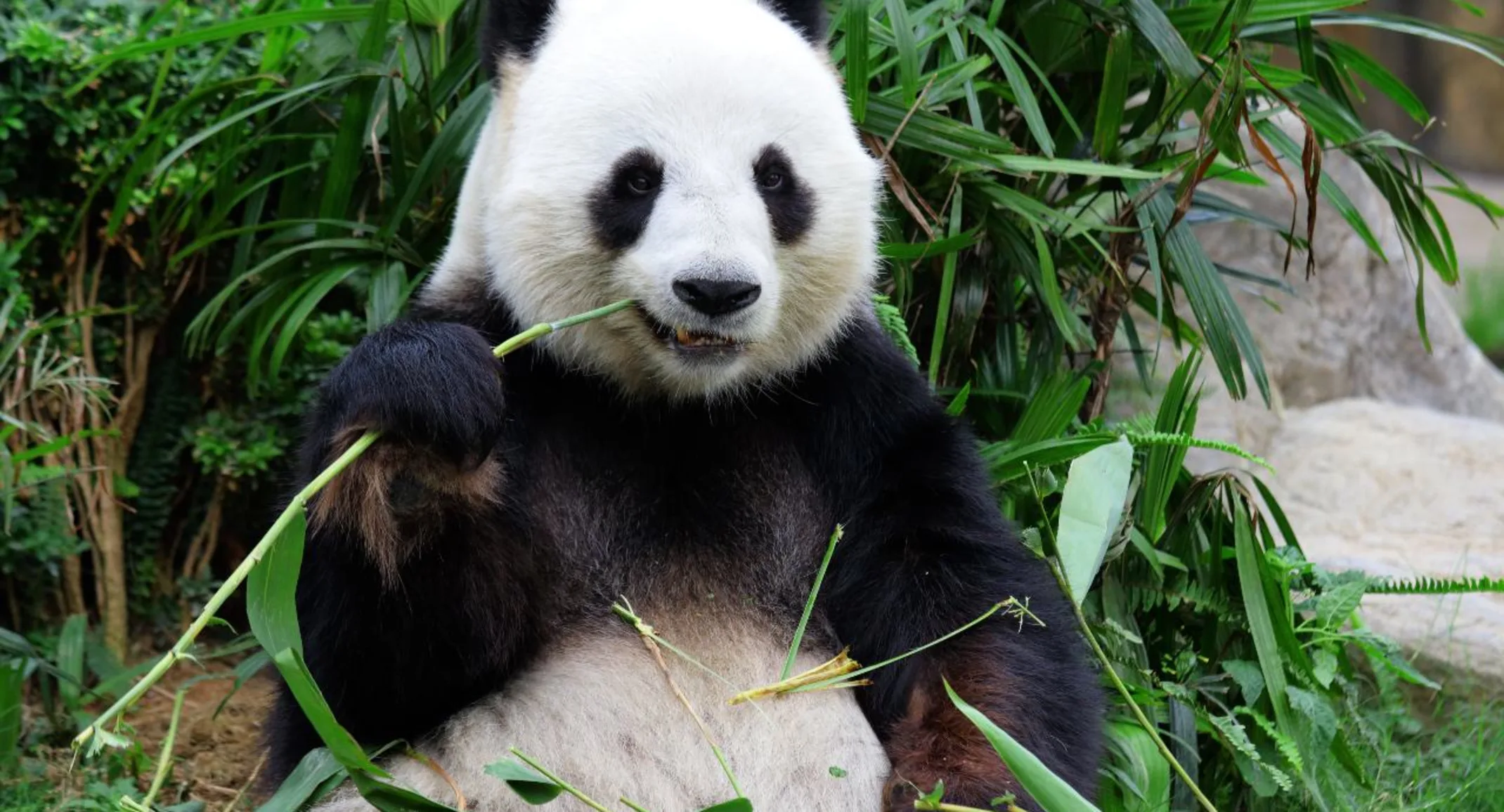Scientific Name: Ailuropoda melanoleuca
Adult Weight: 165 - 353 pounds
Weight at birth: 4-8 ounces
Diet: 25 to 40 pounds of bamboo per day
Life Span: 15-20 years in the wild; 25-35 years in captivity
Habitat: Southwestern China
Pandas, a member of the bear family, typically lead a solitary life. They are excellent tree climbers, but they spend most of their time feeding. They can eat for 14 hours a day, mainly bamboo, which is 99% of their diet (though they sometimes eat eggs or small animals too). Apples and carrots are a favorite treat. Unlike other bears, the Giant Pandas do not store fat and therefore do not hibernate. Consequently, they are constantly in search of food.
The Giant Panda is referred to as a “living fossil,” as it is believed to have existed since the Pleistocene age, approximately 3 million years ago. They once roamed over a large portion of Asia, but the current estimated population of wild Giant Pandas is only 1,864 and 600 living in captivity, with their biggest threat to survival being habitat loss and fragmentation, and climate change. The wild giant panda population is broken up into 33 isolated groups, some with fewer than 10 individuals, severely limiting the gene pool. Of the 18 sub-populations consisting of fewer than 10 pandas, all face a high risk of collapse. This is a major reason Pandas International supports the reintroduction programs.
Giant Pandas tend to have a low reproductive rate, partly because the females only ovulate two or three days a year. In the wild, Giant Pandas use scent and calls to locate a mate during the reproduction period. Cubs will stay with their mothers for about two years. Therefore, females only reproduce every other year or less.
Scientists are not sure how long giant pandas live in the wild, but they are sure it is shorter than lifespans in zoos. They estimate that lifespan is about 15-20 years for wild pandas and about 30 years for those in human care. Chinese scientists have reported zoo pandas as old as 35. The Smithsonian National Zoo's Hsing-Hsing died at age 28 in 1999.

